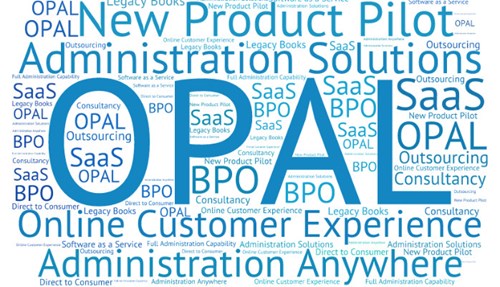The last year has seen plenty of headlines about the bad experiences of banks and insurers when building and migrating to new platforms. Despite a huge budget, some of the biggest names failed to deliver, leaving clients locked out of new systems and budgets overrunning.

- Keep innovation outside of the legacy system
- Understand what problem you’re trying to solve to manage risk
- Assemble a specialist team with a proven track record
Fintech solutions developer OPAL IS, part of OPAL Group, has launched guidance for banks and insurers to replatform more efficiently. Based on the group’s 35 years of experience, OPAL IS has highlighted three key themes of which financial providers need to be aware before embarking on a replatforming in order to make it fast, cost effective and secure.
1. Keep innovation outside of the legacy system
Keep the build outside of the legacy system in a ring-fenced development area, don’t mix the two together from the start. At the very least take a hard look at the benefits of migration versus cost and risk. What is required is a step by step development over a period of time with measurable milestones, triggers and reactions to the market. This reduces complexity so the focus is on the immediate needs for new products. There is less customer disruption and lower cost and risk because there’s no change to the existing systems and no data migration initially.
2. Understand what problem you’re trying to solve to manage risk
Look through the ‘right end of the telescope’ by being clear what problem are you trying to solve? Do you need a new platform or do you need to launch new, competitively priced, attractive products in the channels that customers want to buy them in? Understand how best to keep distribution channels happy, maintain customer service levels, all while testing, learning and retesting. If the focus is cost and risk management, for example, keep in mind that old, complex books of business with very low customer volumes are not a priority where the risks outweigh the benefits and the key problem is how to deliver new products digitally rather than worrying about migrating old books. In these situations, OPAL suggests a selective approach to replatforming.
3. Assemble a specialist team with a proven track record
In-house teams often struggle with the specialist needs of replatforming projects. Build a team that will focus on the three main drivers in developing digital platform solutions – flexibility, speed and quality of build. Building new digital platforms and replatforming existing data doesn’t have to be fraught with complexity and doomed to failure. It just needs to be fully assessed in advance and then broken down into practical and manageable sections, but doing it efficiently, on time and to budget only comes with experience.
Eoin Lyons, OPAL Group CEO, said: ““The last year has seen plenty of headlines about the bad experiences of banks and insurers when building and migrating to new platforms. Despite a huge budget, some of the biggest names failed to deliver, leaving clients locked out of new systems and budgets overrunning.
“We know that what financial providers want to do is to deliver client solutions digitally and at pace. However, they are not always clear how best to do that and we believe our three rules should be front of mind when embarking on a replatforming project.“
OPAL Group delivers cutting edge solutions for the most well-known financial services brands in the market including four of the top five banks and two of the top five insurers in the UK.
https://finfeeds.com/2019/06/19/opal-is-launches-replatforming-guidance-for-banks-and-insurers/
